 Today we’re going to talk functions of the liver. But that sounds a little too boring, and too formal. I’d much rather call this “Meet Your Liver”.
Today we’re going to talk functions of the liver. But that sounds a little too boring, and too formal. I’d much rather call this “Meet Your Liver”.
Today, I want to introduce you to an organ that is vastly overlooked, and underappreciated. I’ve been wanting to write a series on the liver for like 2 years, but I didn’t feel like I could really do it justice. But Dr. Rob has generously agreed to help me. I already had a lot I wanted to say about the liver and its role in health, but he has *blown* my mind with what he’s been sharing. Dr. Rob is my holistic doctor. I introduce Dr. Rob here (where you can find out more about his education, background, and his approach to caring for his patient’s health), and you can read more from him about Adrenals and the Thyroid here.
I cannot WAIT to get into this series! Today, we’re going to dip our toes in, and just get a fly-over view of this amazing organ. This post is not meant to diagnose, treat, or cure any diseases. It’s strictly educational in nature, and just for other people like me who really enjoy learning how the body works to maximize our health. 🙂
I first became interested in learning about the liver when I was diagnosed with two MTHFR (genetic) differences that affected how my body processes and uses B12 and folate. I was researching what I needed to know to support my health, and discovered that the reactions that these genes impaired were actually happening in the liver.
When I started going to Dr. Rob for health issues, and he identified an infection, and leaky gut and tied it into how my liver was functioning, I was fascinated even more. So let’s meet this shy, but vital organ today, and learn about just some of the amazing things that it does.
Today, we’ll start out with a general description of the liver, and some of the important things it does. We’ll talk about 3 of the key functions, and get an overview of what symptoms point to an unhappy liver, and then Dr. Rob will give us a quick tour of the main liver diseases (that aren’t always connected to alcohol consumption). We’ll finish up with some of the health conditions that point to taking a closer look at liver function.
Next week, we’re going to look more in dept at the signs that your liver may be struggling or breaking down, and Dr. Rob and I will be taking questions in the comments into consideration for the rest of the series. 🙂 So be sure to ask questions below and let us know what you’d like to learn more about!
Meet Your Liver
Gwen: Dr. Rob, thank you so much for joining us again here on Gwen’s Nest to teach us about the importance and role of our liver. Can you give us a basic overview of the organ…where it’s located, and a very basic idea of what role it plays in the body?
Dr. Rob: Hi Gwen and thanks so much for having me again! I really love educating people about this amazing body that we have. The liver is such a cool organ to discuss as well, because it plays such a huge roll in our health, our weight and how we feel.
Just looking at the word “liver” you can quickly see that it contains the word “live” in it and this is by no accident. Understanding how the liver works, and more importantly, how to take care of it, is a vital component to leading a truly healthy and happy life.
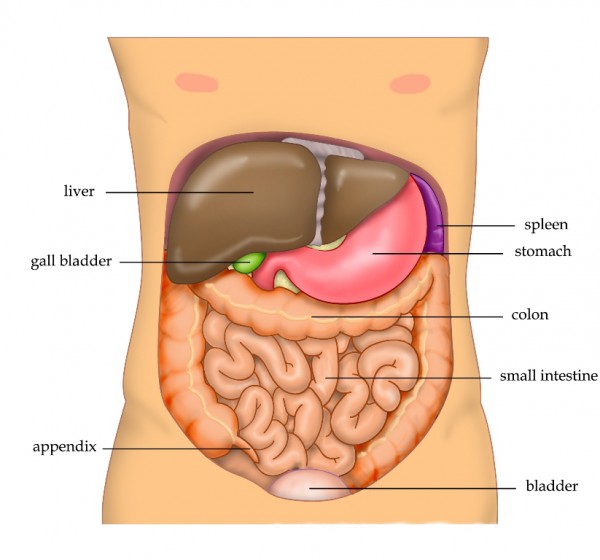 By Tvanbr – Own work, Public Domain
By Tvanbr – Own work, Public Domain
First off, the liver is a 3 pound organ that sits just under the right ribcage. Your liver contains about 220 billion hepatocytes or liver cells. The liver and its cells are responsible for over 500 different functions that you cannot live without.
Ok, I’ll stop it with the puns and I won’t cover all 500 functions as I don’t want to stress anyone’s adrenals out. We already discussed how bad that was in a previous post. 🙂
Just a few important functions of the liver are:
- Breaks down (detoxes) toxins and drugs
- Cleans all the blood from the small intestines.
- Makes special proteins that helps the joints stay healthy.
- Stores vitamins and carbohydrates- especially the B vitamins!
- Plays an indirect roll on the regulation of blood pressure.
- Regulates other hormones such as estrogen, testosterone and thyroid hormone (more on this in a future post)
All in all the liver is a vital organ with a tremendous amount of functions.
3 Important Functions of the Liver
Gwen: The functions of the liver really play a hugely critical role in health, huh? I learned that it processes and breaks down lipids from the blood stream, including hormones, which are lipids, the fats you digest, and the fat you lose during weight loss. And it also functions like a massive living recycling center, where it disassembles all of the compounds that come directly from the small intestines in the blood supply. It not only further breaks down the good stuff and sends it around the body to be used, but it also takes toxic components that would do harm to the body, and in effect, puts a sheath on the knife by a process called methylation.
I feel like the liver was more talked about in the earlier part of this century, and they connected it to constipation, complexion, mood, headaches, etc. in the old ads.
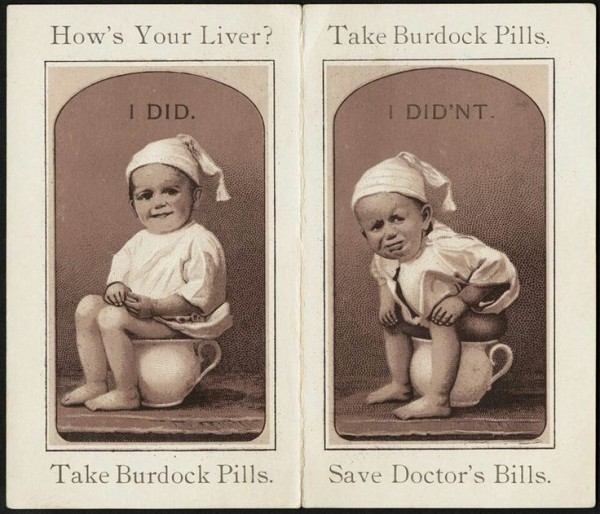 The liver really doesn’t get enough press for what a vital organ is it. You hear about heart health in the press, but no one is talking about the health of your liver. I’m SO glad you are here to guide us through this!
The liver really doesn’t get enough press for what a vital organ is it. You hear about heart health in the press, but no one is talking about the health of your liver. I’m SO glad you are here to guide us through this!
Can you give us the top 3 functions that you’d want everyone to be aware of?
Dr. Rob: Definitely. Here are 3 of the main functions of the liver that I think are really important to understand.
The liver is…
Our Immune Giant. I say giant because about 80% of all your tissue macrophages (a powerful type of white blood cell that destroys toxins and bad guys like bacteria and viruses) reside in the liver. The names of these immune power punchers are the Kupffer cells. Since all of your blood travels through the liver it needs its own immune defenses. These cells are so immunologically powerful that they put a serious hurting on parasites, yeast, bacteria, mold, fungi and viruses. In addition, they literally eat up and break down toxins that could damage the body. Often people with chronic sinus problems, frequent colds (more than 1 to 2 per year), chronic fatigue and unresolved pain and/or inflammation have a problem with the Kupffer cells. And yes, there is a way to help these cells regain their knockout power, which I’ll cover in a future post.
The liver is…
Our Adrenal Optimizer. This organ is SO vital to adrenal function. Remember from a previous post that the adrenal glands make about 60 different hormones but one of the main ones they make is cortisol.
Cortisol, in the correct amount- and the statement “correct amount” is key-regulates your wake-sleep cycle. Cortisol helps you have energy, reduces pain and inflammation. It helps you to feel happy, focused, supports mental concentration and plays a role in regulating your blood sugar. 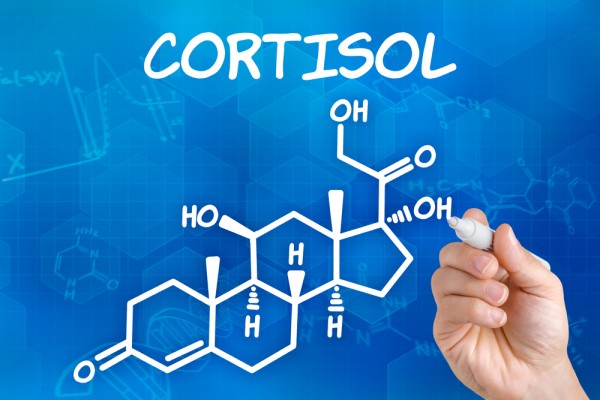
Now when cortisol is not in the correct amount a person can feel anxious, stressed, and irritable, develop insomnia, have pain and inflammation, have extreme fatigue and have bouts of low blood sugar or high blood sugar.
Here’s the kicker so listen up: your liver controls the amount of active cortisol in the blood. That’s right. This is so important I’m going to say it again. The liver controls the active amount of cortisol in your blood. You see, cortisone is the inactive form of cortisol. Your liver makes an enzyme called, 11β-Hydroxysteroid dehydrogenase, don’t worry there is not a quiz at the end of this…..lol.
Well, this enzyme turns cortisone into the active adrenal hormone cortisol. (By the way, you never get a shot of cortisone. They just call it that. What you are really getting is the active form of cortisol or some biologically active but synthetic form of cortisol.)
Now prepare to have your mind blown. In reality, there are a certain number of “adrenal fatigue” cases that are really nothing more than a liver case. They take all the adrenal supplements. Do all the stress reduction techniques. Do everything under the sun that you are supposed to do for adrenal fatigue but they make little or no improvement. Why? Well for them, it’s not an adrenal problem. It’s a liver problem.
They’ve been “treating” the wrong problem. The liver is so beat up that it can’t convert enough of the cortisone to cortisol so you get all the symptoms of adrenal fatigue. And yes, I absolutely test for that using a special lab procedure when I feel it’s appropriate.
Finally, the liver is the center for…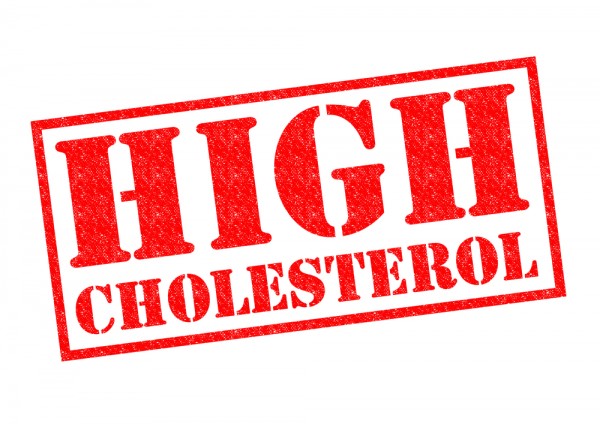
Cholesterol Metabolism. Cholesterol is an important repair compound for the body, but having it in too high amounts can create health issues. Your liver makes 3,000 mgs of cholesterol each day and is responsible for breaking down that cholesterol. Sometimes when a person’s cholesterol goes high it has nothing or little to do with their diet. However, it has everything to do with the health of the liver. Sometimes there are certain parts of the liver that are damaged. It will be able to produce the cholesterol but will have a harder time breaking it down, which of course will make the cholesterol go high. This is not really a cholesterol problem but a liver problem.
Beyond Alcohol: The Liver Connection
Gwen: We’ve all heard about the liver being affected by overusing alcohol. But that’s pretty much the extent of the press that the liver receives. Since I rarely consume alcohol, I pretty much checked the liver off of my mental list as not being something that I need to know about. Now I know that’s NOT true at all! Can you describe some of the very common issues that pop up if your liver is struggling, and maybe a few diseases that directly affect or tie into the liver?
Dr. Rob: Sure. I’ll go into more detail on these in the next post in this series, but here are the top 10 symptoms that I look for that point to your liver struggling or starting to break down:
- Arthritis or achy joints.
- Skin problems such as; itching, eczema, acne, psoriasis, hives, rosacea, dermatitis, red dots, brown age spots, and many others.
- Early morning insomnia
- Fatigue
- A pot belly. There will be fat there but there is also fluid that deposits in the abdomen.
- High blood pressure
- High cholesterol
- Cravings for fatty foods and carbohydrates
- Difficulty in losing weight
- Irritability
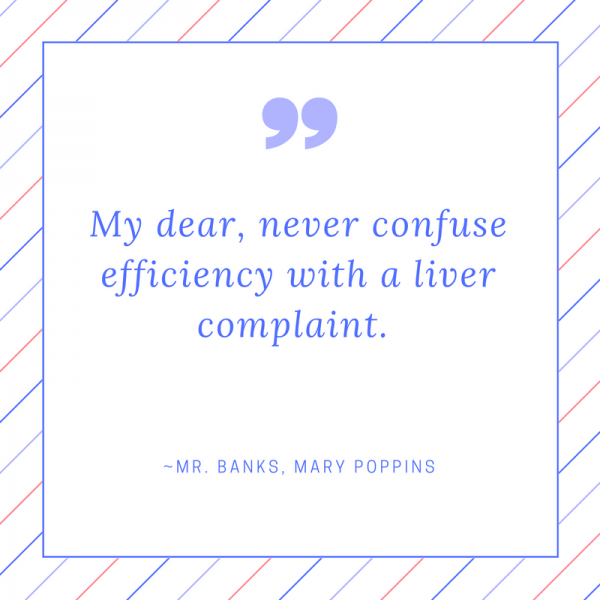
Liver Diseases
You wanted me to discuss a few diseases of the liver. The crazy thing about this liver is that your medical lab work can be completely fine and you can still have a major liver problem or even a disease. I can certainly cover more on that topic in the future.But before we talk about diseases, I want to point out the really cool thing about the liver is that it has an amazing capacity to regenerate and heal itself. So providing you are doing the right things for yourself, it can almost always fully recover. And I want to emphasise, “YOURSELF.” Not what Dave did, or what Sally did, or what might have worked for Lisa but you do have to find out what is right for you. That does require taking a look at your own personal health with the correct lab and holistic testing so you can find out what is wrong with your body. From there you can start your own customized program to get your body well. The bottom line though, if you do the right thing for your liver it can almost always fully recover.
Let’s start with the all too common Fatty Liver. Essentially, this is a condition where the liver cells (hepatocytes) have been so damaged by toxins, virus, molds, bacteria, parasites and so on, that the damaged cells can’t replace themselves quickly enough so the liver starts to deposit fat in these places. This is not a good situation simply because there are now less hepatocytes in the liver and as a result the liver can’t function as well. Over time the liver can get worse and worse until the point where the person gets really sick. 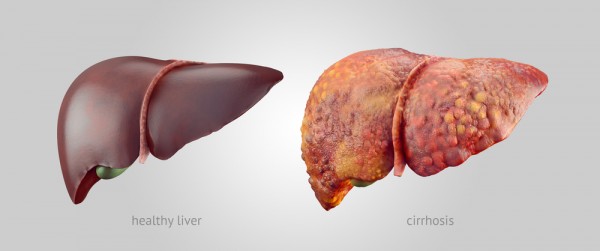
Cirrhosis of the liver is another all too common liver disease. Cirrhosis is when the hepatoc
ytes die and now scar tissue is left behind. It is usually caused by, the viruses hepatitis A, B and C or alcohol and drug usage.
Many people say to me, “But Dr. Rob I don’t drink and I don’t do drugs! How could my liver be damaged like this?” My response to them is often, “How many medications (drugs) do you take or have you taken? How long have you been on your medications (drugs)?” All of that matters. Every medication that you take has to be processed by the liver.
I’ve had patients who take Tylenol every week for headaches plus a daily antidepressant. Well add up 52 Tylenols per year and 365 antidepressants per year and you are giving your liver quite the task. Alcohol and drug induced cirrhosis are simply when drugs such as, a variety of prescription medications, over the counter medications and/or too much alcohol consumption has damaged the liver to the point where it starts to form scar tissue.
Please hear me: I’m not saying stop your meds. Some of them can be saving your life for sure. I’m just saying, find out what’s wrong with your body and then get your body healthy so it doesn’t need the meds any longer. Please don’t stop or start any medications or supplements without consulting your licensed healthcare professional. This information is purely educational. Yes, that’s my FDA disclaimer. 🙂
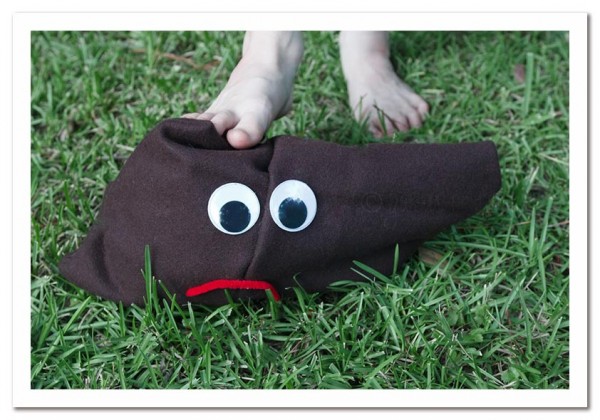
Leaky gut is the last thing I’d like to touch on since I see it so much in my clinic and it does have a direct impact on the health of your liver. Simply put, leaky gut is when the toxins from the stool in your gut leak into your bloodstream. Now why on earth would your body want stool toxins leaking into your bloodstream? Well it wouldn’t.
See, along the small intestines you have specialized protective cells that carefully filter the good stuff: vitamins, minerals and all the nutrients into your blood stream so your body can use it. These protective cells protect and block the absorption of the waste and toxins to keep them inside the intestines, and out of the blood stream.
There are certain conditions that can arise in the gut that can cause these protective cells to die, be killed or break down. When the protective cells breakdown, there are holes in the protective lining, and toxins then leak from the gut into the blood stream. Of course this is not good for the liver, who is catching all of the blood directly from the small intestines for further processing. The liver is designed to handle a certain amount of toxins but not when they are a constant stream, 24 hours per day, 7 days per week leaking from your gut into the bloodstream. That’s an awful lot of toxins for the person’s liver to handle. Combine that with a daily dosage of some medication, and as a result, the liver starts to struggle and break down. 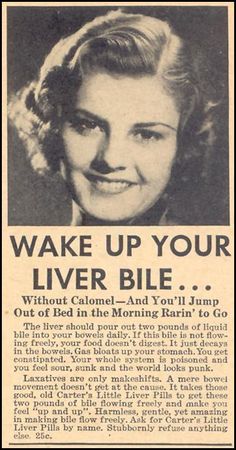
Liver Cleansing: Why and How?
Gwen: I’ve seen lots of references to liver cleanses that involve drinking large amounts of olive oil…they sound distinctly unpleasant, so I never tried one. Do you recommend this type of thing? Can you tell us why and when someone would want to consider “cleansing” their liver, and whether this type of oil drinking remedy is effective as a liver cleanse?
Dr. Rob: Should you cleanse your liver? Well let’s take a look at that. This organ is a major detoxifying organ. It is also a major storage organ. And yes, sometimes those toxins start to get stored in the liver and this can be very bad. When toxins start to accumulate in the liver the liver becomes overloaded. It’s like having too many programs running on your computer and the thing just freezes up. Been there, done that!
When the liver freezes up we are talking about the inability for it to remove the toxins from the blood stream. So what happens? Well, if the liver can’t cleanse the toxins from the body then the toxins are free to start depositing in other bodily tissues. When toxins deposit in tissues the immune system often starts to attack them. This sometimes sets up autoimmune diseases and can lead to conditions like; Hashimoto’s Thyroiditis, Rheumatoid Arthritis, Lupus, Multiple Sclerosis and a host of other autoimmune diseases.
The toxins can also start to deposit into the fat, which will ultimately make weight loss difficult. They can deposit in the skin and create skin problems, or in the joints and cause arthritis. Basically, wherever the toxins go they can wreak havoc on those places. So yes, yes, yes, we do need to cleanse the liver. This removes the toxins that are stuck in the liver and gets the liver working at top capacity again. It’s kind of like restarting that computer of yours that just froze up. Now the question is what cleanse should you do.
Gwen, you mentioned above a cleanse where you drink large amounts of olive oil. Please everyone, don’t do that one unless you are working with a licensed healthcare professional and he/she has determined it to be the correct procedure for you. That specific cleanse causes an intense contraction of the gallbladder and could potentially cause gallstones to get stuck in the bile duct.
Gwen: Ah, yes! That exact thing happened to a friend of mine, which scared me off from trying the olive oil cleanse.
Dr. Rob: In all honesty, I don’t really like to recommend a general cleanse. I like to look at each person’s case individually and based on all the available data (labs, tests, history and so on) determine the correct cleanse for their liver. In the last 19 years I’ve never had 2 patients on the same holistic program. It just doesn’t happen because we are all unique. So I think you need to match the person’s case up with the correct cleanse. 
Some general information that can help would be that the liver is involved in digestion and it doesn’t detoxify and digest well simultaneously. So, whatever cleanse you decide on, ensure it is one that doesn’t require the liver to digest heavy proteins or fats. Keep it light. Veggies can be key. Juicing can be good. Stay away from fasting if you have adrenal problems as this can cause you to crash. Be careful of doing too many cruciferous veggies (kale, cauliflower, broccoli, cabbage, etc.) if you have thyroid problems as they block the absorption of iodine into the thyroid.
Ultimately, I recommend that you find out what is wrong with your body and then do the correct cleanse, for you.
What Can Go Wrong?
Gwen: So, we’ve talked about what types of conditions can affect the liver. Can you talk about the types of situations where you’d really want to get a closer look at how the liver is functioning? Just give us an overview, because I know you’ll be back next week to talk about this part more in depth.
Dr. Rob: I look at the liver anytime I know the person that has been plagued with some problem for years and it’s not resolving. They have been to every doctor under the sun but still have their issue. You always need to look at the liver for that case. But again you have to do the right tests, this is equally as important. I always look at the liver when I start to see patterns like:
- hormonal problems from adrenal fatigue
- Hypothyroidism
- estrogen dominance
- autoimmune disorders
- pain disorders like fibromyalgia
- any type of mysterious unresolved chronic health problem
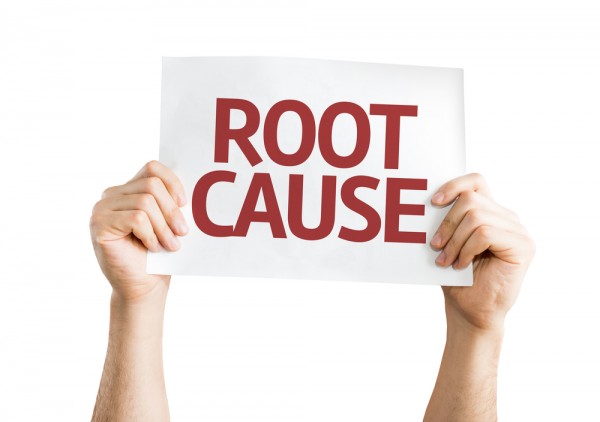
I recently had a patient that swore up and down she had thyroid problems. She’s been to every doctor and told the doctors that she can’t lose weight, is tired, can’t sleep well, is anxious and depressed, has brain fog and body pain. She knew, 100% in her heart from everything that she read that she had a thyroid problem.
Well we started working together, and it turned out she had a liver problem that was “causing” a thyroid problem to develop. After only two week of working with me on this problem she lost 15 pounds, had no more pain and had improvement in almost every symptom. And what I did was start to handle her liver. So this is one organ not to be ignored. After all if you want to “live” you have to take care of your liver. Ok, last pun 🙂
Gwen: Dr. Rob, thank you SO much for giving us a tour of the liver today, and sharing a little bit about how important it is for health, and how it ties into SO many different serious conditions. I look forward to hearing more about the signs that you should look at your liver health, and how we can love on our livers and support them in coming weeks.
If you’d like to contact Dr. Rob or speak with the awesome staff at Alternacare, you can reach them through their website at www.Alternacare.inc. Dr. Rob and the other doctors at Alternacare frequently work with patients long distance, and you can fill out a free health evaluation form on the website to start that process if you’re interested in working with them.
Pin it!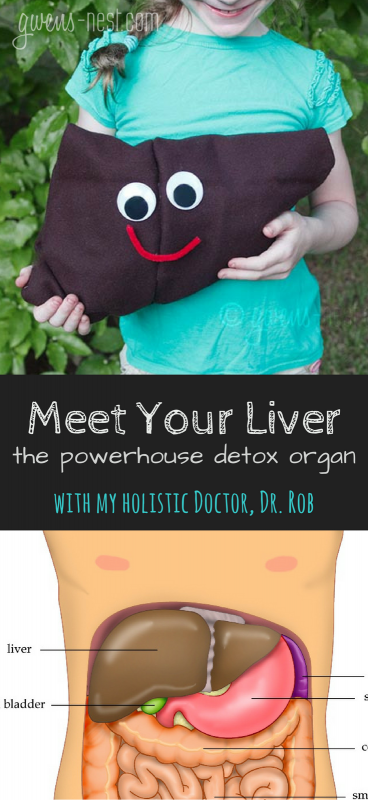
Do you have a question** about the liver that you’d like us to cover in coming posts? Leave a comment below with your questions.
**Please note that Dr. Rob cannot give feedback on questions about your personal health. The website at www.Alternacare.inc is the best way to get in touch with him or work with one of the holistic doctors at his practice.
Follow me on Pinterest and never miss a natural remedy!
Follow Gwen’s Nest’s board Gwen’s Nest Herbs & Natural Health on Pinterest.
I have a question. I have thyroid, adrenal and Lupus problems, am close to 60, can’t lose weight etc. My question is that I have blood results for the last 3 years that show a test result of F-actin IgG at 40 units(Actin Smooth Muscle IgG Ab, Quant, Serum). That result leads me to believe I may have Autoimmune hepatitis. Can this be reversed through diet or medicine?
Hi Jeanie,
That autoimmune hepatitis is a possibility. However, when we look at autoimmune disease we have to understand what the body is doing. Is it attacking itself? In my opinion, NEVER. It is always trying to remove something (toxin, virus, parasite, yeast, so on and so forth………) from the tissue it is attacking. The key is finding out what that it. Theoretically, a person would have to first find the thing that is causing the immune system to respond in this negative fashion. Then handle that. Once handled the liver will then have the chance to repair and heal. The one great thing about this organ is it is remarkable regenerative. I’ve worked with many autoimmune cases over the years and many people with liver disease. I actually had some major liver problems that caused me to become pretty sick. I am still blown away when I look at my own personal journey. You can look at some before and after pictures of myself, which will give you and idea where I was at.
http://www.alternacareinc.com/my-own-story/
Ultimately the body can heal Jeanie! Just work to find the cause. Always look to finding the cause.
My Best,
Dr. Rob
Thank you for this post! We recently got thru the roof lab work on hubby’s liver. We haven’t met the specialist yet but have an appointment. This we we decided to start a whole new healthy lifestyle. Am hoping and praying that we turn his bloodwork around!
Hi Gwen,
Thank you so much for such a massive post – but I guess something as important as our liver deserves nothing less. I am already sharing your info with my family and we might have to make some changes!!
Thanks
Kacy
Bless you Gwen! I hope you are well! Thank you for all your helpful information. After 3 years on THM and still feeling beyond terrible, I am starting with Alternacare on Wednesday. Thank you for the recommendation, they are very considerate and kind!
Good for you! It’s made a huge difference in my overall health. And aren’t they THE NICEST!!!
I stumbled across this article this morning. Would love to see the follow up interviews posted. We all have much to learn about our livers! Thank you for a great website. Keep up the good work!
Hi Gwen, I know that Dr. Rob said doing a liver cleanse should be case specific but are there any safe general liver cleanses that anyone can do? I have 3 little boys & have had two miscarriages. Each pregnancy I have had intraheptic cholestasis of pregnancy which is a liver issue while pregnant and it ends up releasing bile into your bloodstream & causes itching during your last trimester. Each time I’ve been pregnant I’ve had it sooner and sooner. My mother also had this during her pregnancies. That being said I believe I must have an underlying liver issue when not pregnant to develop this during pregnancy. I’ve never drank or done drugs but my diet hasn’t not always been the best. I’m very interested to know how I can turn this around! Thanks
Hi Crystal,
Is that like Pupps? I know several women who have had that, myself included. A friend had great success with dandelion root for it! If you’d like to contact Dr. Rob, he’s at Alternacare in Newnan, GA.